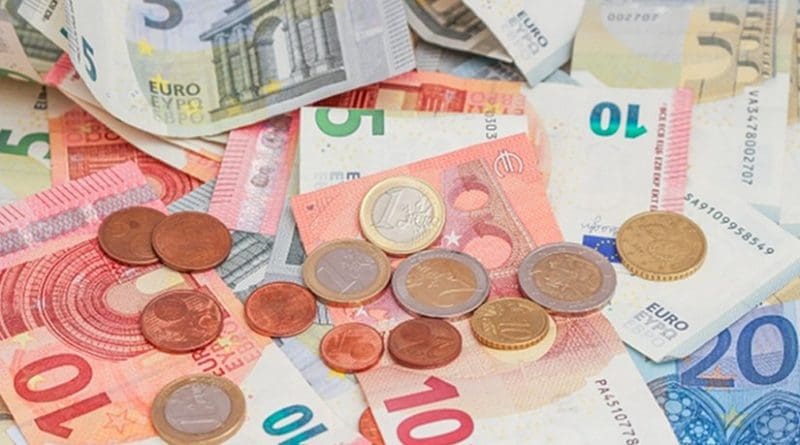Dexia Capital Concerns Fuel Eurozone Banks Woes
By EurActiv
France and Belgium will “step in” if needed to save the Brussels-based Dexia bank, which called for an emergency meeting yesterday evening (3 October) amid concerns of the bank’s exposure to Greek sovereign debt and its impact on Europe’s ailing banking system.
The Franco-Belgian bank, one of the first European banks to be bailed out in 2008 holds €20.9 billion in sovereign debt issued by troubled eurozone countries, including Greece and Italy.
After the meeting, Dexia said that chief executive Pierre Mariani had been charged with preparing measures to resolve structural problems that were harming its operations, possibly the set up of ‘bad bank’ to hold a portfolio of assets, which has hampered the financial institution.
Dexia’s statement came shortly after the conclusion of a meeting of euro zone finance ministers in Luxembourg, including those of Belgium and France, both shareholders in the group.
“The two governments are following the situation and will intervene if necessary,” Belgian finance minister Didier Reynders told reporters in Luxembourg.
According to a source familiar with the situation, Dexia’s shareholders were keen to avoid a capital increase, but the group was likely to put a part of its French municipal lending unit Credit Local for sale.
But Alex Koagne, analyst at Natixis in Paris said there could not be any demerger until capital was pumped in.”An injection is needed so the bank can withstand losses on toxic assets,” he said.
He estimated Dexia needed €5 billion in additional capital to have a nine percent common equity Tier 1 ratio under Basel III rules.
Dexia is not the only European bank facing a need for capital as regulations become tougher, profits sag and lenders face losses on sovereign bonds if the euro zone crisis is not resolved.
Banks face a €148 billion euro capital shortfall under a base case and a €227 billion shortfall under a stressed scenario, according to analysts at JPMorgan, who say Unicredit, Deutsche Bank, Lloyds, Societé Generale and Barclays each face a deficit of over €7 billion under its stressed scenario.
If banks are unable to raise the capital privately, government ownership of the sector could jump to 22% from 7% now, JPMorgan analyst Kian Abouhossein said in a note.
European bank stocks fell on average by 2.8% yesterday. Dexia’s stock was the weakest in that sector, dropping 10.2%.
Dexia, which received a €6 billion bailout from Belgium, France and other major shareholders at the height of the financial crisis in 2008, held €3.8 billion of Greek sovereign bonds at the end of June and had a credit risk exposure to the country of €4.8 billion.
Dexia’s market capitalization is only €2.5 billion, and its core capital is seen as insufficient to absorb big hits.
The company has taken a €338 million hit to cover a 21% loss on Greek sovereign debt maturing by 2020, part of a plan agreed by private sector investors in July.
But with market prices indicating investors could suffer a loss of 50% or more, Dexia’s Greek bill could be more than €1 billion more, analysts say.
Moody’s said yesterday that the Brussels-based group had experienced further tightening of its access to market funding and that it could cut its A3 long-term rating.
Original article

